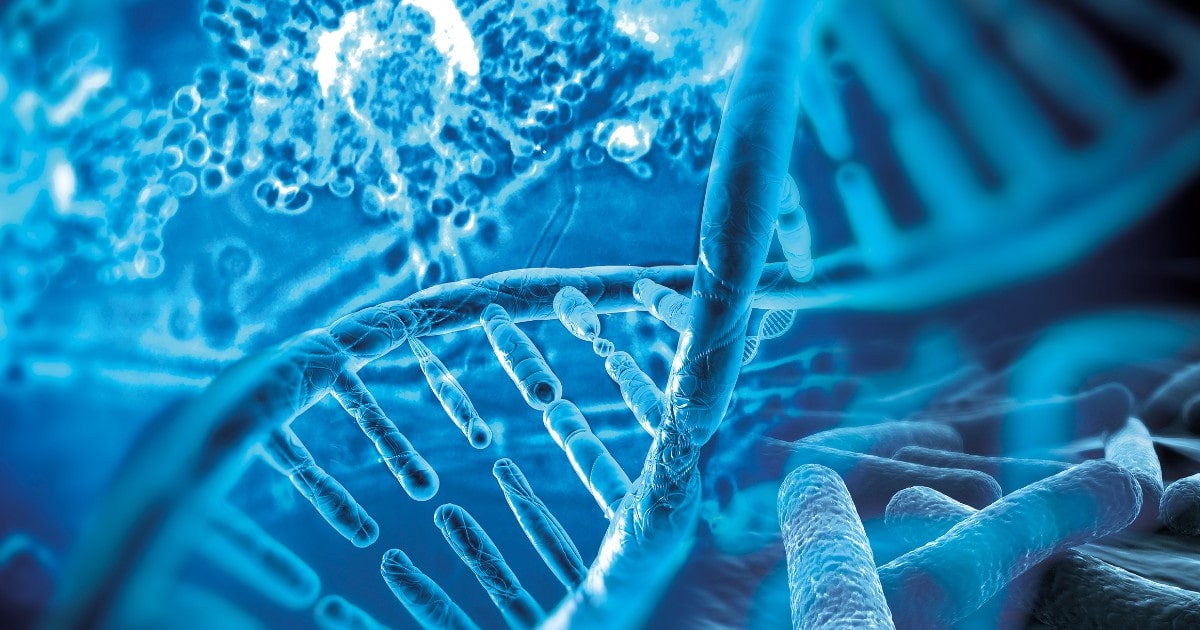
Expert Reviewed By: Dr. Brandon Colby MD
Epidermolysis bullosa dystrophica inversa (EBDI) is a rare, inherited skin disorder characterized by fragile skin that easily blisters and tears. This article aims to provide a comprehensive understanding of the disease, its diagnosis, and the role of genetic testing in managing it. We will explore the significance of genetic testing in identifying the underlying genetic mutations and how it can be helpful for families affected by this disorder.
Understanding Epidermolysis Bullosa Dystrophica Inversa
EBDI is a subtype of epidermolysis bullosa, a group of genetic skin conditions that cause the skin to blister and tear easily. The term "inversa" refers to the unique distribution of blisters and lesions, which primarily affect the flexural areas of the body, such as the armpits, groin, and neck. This autosomal recessive disorder is caused by mutations in specific genes involved in the production of proteins that maintain the integrity of the skin.
There are several types of epidermolysis bullosa, each with varying degrees of severity. In the case of EBDI, the disease is generally milder compared to other forms, with symptoms ranging from mild to moderate. However, it can still cause significant discomfort and complications, including scarring, skin infections, and difficulty in daily activities due to pain and skin fragility.
Diagnosing Epidermolysis Bullosa Dystrophica Inversa
Diagnosis of EBDI typically begins with a thorough clinical evaluation, including a detailed patient history and physical examination. Skin biopsies may be performed to examine the skin's structure and identify any abnormalities. However, the definitive diagnosis of EBDI relies on the identification of the underlying genetic mutations responsible for the disorder.
Genetic Testing for EBDI
Genetic testing plays a crucial role in diagnosing EBDI and understanding its inheritance pattern. It involves analyzing the specific genes associated with the disease, such as the COL7A1 gene and the ITGB4 gene, to identify any mutations that may be present. Genetic tests can confirm the diagnosis and provide valuable information on the inheritance pattern, allowing affected individuals and their families to make informed decisions about family planning and management of the disease.
Prenatal Diagnosis
For families with a history of EBDI, prenatal diagnosis can be a valuable tool in managing the disorder. By analyzing the DNA of the fetus during pregnancy, healthcare professionals can determine whether the unborn child has inherited the genetic mutations responsible for EBDI. This information can help families make informed decisions about their pregnancy and prepare for the potential challenges of raising a child with the disorder. A recent study highlights the successful use of genetic analysis and prenatal diagnosis in a Chinese family affected by EBDI.
Carrier Testing
Carrier testing is another important aspect of genetic testing for EBDI. Since the disorder is inherited in an autosomal recessive manner, both parents must carry a copy of the mutated gene for a child to be affected. Identifying carriers of the gene mutations can help couples understand their risk of having a child with EBDI and make informed decisions about family planning. A report on two sisters with EBDI suggests the importance of considering an autosomal recessive mode of inheritance and the value of carrier testing for at-risk families.
Conclusion
Epidermolysis bullosa dystrophica inversa is a rare and challenging skin disorder that significantly impacts the lives of affected individuals and their families. Genetic testing plays a crucial role in diagnosing the disease, understanding its inheritance pattern, and providing families with valuable information for managing the disorder. By identifying the underlying genetic mutations and utilizing prenatal diagnosis and carrier testing, healthcare professionals can better support families affected by EBDI and help them navigate the complexities of this rare condition.
About The Expert Reviewer
Dr. Brandon Colby MD is a US physician specializing in the personalized prevention of disease through the use of genomic technologies. He’s an expert in genetic testing, genetic analysis, and precision medicine. Dr. Colby is also the Founder of and the author of Outsmart Your Genes.
Dr. Colby holds an MD from the Mount Sinai School of Medicine, an MBA from Stanford University’s Graduate School of Business, and a degree in Genetics with Honors from the University of Michigan. He is an Affiliate Specialist of the American College of Medical Genetics and Genomics (ACMG), an Associate of the American College of Preventive Medicine (ACPM), and a member of the National Society of Genetic Counselors (NSGC)